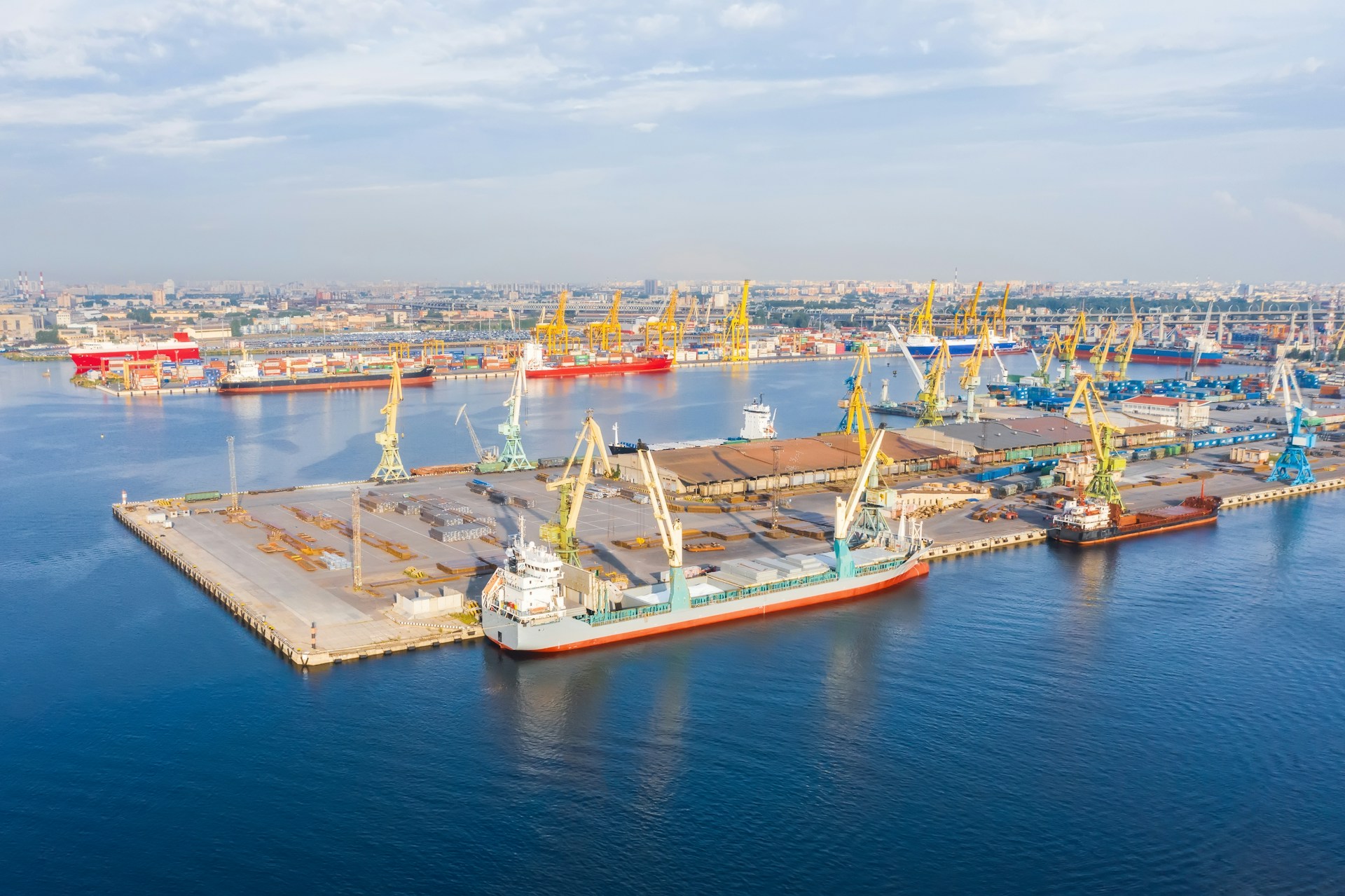4 Reasons Why There Are So Few Women in Seafarer Jobs

It’s no secret that seafarer jobs and the maritime industry have a disproportionately high number of male employees to women. In fact, according to the IMO “women represent only two percent of the world's 1.2 million seafarers and 94 percent of female seafarers are working in the cruise industry.”
That leaves very few seawomen working in the types of jobs at sea that can be found on container ships, oil tankers, bulk carriers and the like. But why is this?
Read more: Women in Maritime: The Stats You Need to Know
The general consensus is that the lack of female seafarers can most likely be blamed on the so-called traditional mindset of this male dominated industry.
But is that really all it is? After all, most of us have women in our lives who buck the so-called trend and do ‘traditional male jobs’ or who aren’t intimidated by something as intangible as a ‘mindset.’
So what are some of the other reasons that a female working in Able Bodied Seaman jobs, Chief Officer jobs, Deck Cadet jobs or Oiler jobs is such a rare sight? Why aren't women choosing jobs at sea as a profession?
After all, not every budding female mariner is going to be deterred by tradition when it comes to chasing her dream career to pursue a life on a container or cargo vessel.

4 things that might reveal why there are so few female seafarers
Let's take a look at some of the reasons why potential female seafarers might be shying away from pursuing maritime jobs.
1. The idea that jobs at sea are “only for the boys”
Yes, it’s true that the majority of crews are mostly male. Historically, shipping is a male dominated industry and resistance to changing that mentality can run deep.
However, we’re no longer living in the 1800's! There are plenty of occupations that were once considered ‘men only’ that, it goes without saying, people of all genders can, and do, excel in: Medicine. Politics. Law. The Military and Armed Forces.
The list goes on and while some of these professions may still be dominated by men, it's unthinkable in 2021 to imagine a medical profession without female doctors or governments with only male politicians.
But is the average trainee female seafarer discouraged by the thought of being harassed or bullied onboard? Is the thought of working in jobs at sea and living life on a container ship as a minority putting her off?
Maybe the idea that she will receive less support from their fellow crew members is a deterrent?
Or does she worry that she'll be judged for being thought of as physically weaker or having an inferior skill set - even though she has gone through the same training, is just as fit, and holds equal, if not better, qualifications? It’s possible.

What female cadets considering a career at sea should know is that shipping companies are committed to protecting the rights of employees - of any gender. As the organization Human Rights at Sea states:
"Human rights apply at sea as on land."
2. Not knowing that working at sea was an option
Are schools and careers advisors still not making it clear to students that companies in the shipping industry are welcoming young women into maritime jobs?
Are maritime academies not making their courses appealing enough to female seafarers? It would seem so, as many existing seawomen report a lack of awareness when it comes to opting for a job at sea.
Even those young women that do choose male dominated careers generally tend to go for jobs in STEM - science, technology, engineering and mathematics. Maybe they’ve thought of going into a career in maritime or maybe it never occurred to them in the first place, but what seems clear is that there is a lack of information from the outset.
Schools and career advisory services need to make sure they’re including information about the maritime industry and commercial shipping to all students, regardless of gender.
3. Having a family that isn’t encouraging
Of course this is something which will vary a lot from seafarer to seafarer, from family to family and from culture to culture. But chances are, a young girl or teen expressing an interest in working in seafarer jobs may suffer from a lack of support from her family.

In many cultures women are still expected to stay at home, manage the house and have children and either not work, or to find employment in an area that is generally seen as more female orientated or based locally.
Certain societies may frown upon women in maritime spending months away at sea.
Unfortunately, even in the era of the stay-at-home-dad and parents sharing responsibilities, bearing and raising children still has a massive impact on the way women in the workplace are perceived.
And of course, this applies to many jobs, not just to women who want to work in jobs at sea.
Even in this day and age, many women are still being forced to choose between a career and a family - often giving in to social pressure to choose a family.
4. A perceived lack of options after working at sea
These days not many people, no matter where they work or what they do, stay in the same job for life. And that goes for those working in seafarer jobs too - no matter whether they’re male or female.
Working away at sea is rewarding in so many ways but it can take its toll, both physically and mentally.
Seafarers need a definite type of personality to forge a successful career at sea, but no matter how good they are at dealing with working away from home for months on end, or how much physical strength and agility they have, many seamen and women decide to return to land after time spent at sea.

But if the thought of not knowing where to turn next after years spent working in a seafarer job is putting off some women (or men) from pursuing their dream of working at sea, the good news is that there are plenty of great career options available for anyone who wants to work in a shore based maritime job, whether that’s based in an office or working in a port.
In fact there are numerous maritime jobs ashore that anyone who is thinking about working in jobs at sea, but who is also worried about career progression and the future, could consider.
And now for some more good news…
It would be wonderful to see more women choosing to work in seafarers jobs! And if you’re a female considering a career in the maritime industry, but you're worried about a lack of support, there is a silver lining to the cloud of obstacles that may or may not stand in your way.
There are an increasing number of organizations dedicated to supporting women in maritime jobs.
Female seafarers already working in jobs at sea and living life on a container ship, as well as anyone just thinking about choosing shipping as a profession, should check them out.
The fact is, the maritime industry offers some fantastic employment opportunities for both men and women who want to work at sea and we urge anyone considering a maritime career to follow their dreams and explore their potential!
To find out what life at sea is really like, you might like to take a look at this blog post which covers a week that one of our office-based female coworkers spent on a container ship at sea:
Life on a Container Ship: A Shore-Based Employee's Week at Sea
Make your career move and find seafarer jobs with Martide
If you’re a seafarer looking for your first - or next - contract, Martide would love to help you - whatever your gender!

Register for a Martide account now and then take a look at our maritime job vacancies and get your career at sea moving in the right direction.
Best of all, you can even apply for jobs at sea through Martide when you’re on the go thanks to our mobile app. Android users can download the app through Google Play and seafarers with iPhones can get it from the Apple App Store.
What are your thoughts on why there are so few females working in seafarer jobs? Let us know in the comments below.
This blog post was originally published on September 30th 2019 and updated on June 3rd 2021.

Eve Church
Eve is Martide's content writer, publishing regular posts on everything from our maritime recruitment and crew planning software to life at sea. Eve has been writing professionally for more than two decades, crafting everything from SEO-focused blog posts and website landing pages to magazine articles and corporate whitepapers.
UK

is the only site for maritime jobs



